- Home
- JoAnn Ross
Legends Lake Page 2
Legends Lake Read online
Page 2
It was the most remarkable comeback Alec had ever witnessed. Her magnificent heart and the desire to win were proving stronger than her hatred of mud.
They were nose to nose.
She forged ahead and was flying down the final stretch when a single ray of sunshine streamed through a break in the bruise-colored clouds, casting a shadow from the timekeeper’s box atop the stands.
Startled, the filly did what came naturally: she tried to jump it, her speed causing her to land on her foreleg in a way nature had never intended. There was a massive gasp from the crowd as she went crashing down. Screams as she somersaulted into the rails. Weeping when she struggled gamely to her feet, the foreleg that had snapped just above the fetlock swinging hideously, uselessly.
Alec jumped the rail and was running toward the horse when the track crew leapt into action. An outrider managed to immobilize the stricken filly while high screens were erected around her. The waiting ambulance raced toward the scene.
When Alec reached the horse, she whinnied weakly.
“I know, baby.” He stroked the velvety dark face of this horse he’d begun training shortly after her first birthday. “You never should have been out there.” His voice cracked. A ball of crimson mist rolled toward him from the infield. He managed to ignore it. For now. “But you’ve never run a stronger race.” He didn’t need to be a vet to know that it was also her last.
She whinnied again, softly, raggedly, as if pleased by his approval.
The ambulance arrived. The veterinarian emerged, face grim, bag in hand.
Alec pinched the bridge of his nose to stem the hot moisture threatening at the back of his eyes as he knelt beside the filly who possessed worlds more heart than its wealthy Yankee owner ever would.
It did not take long. Lady Justice breathed a short, shuddering sigh. A filmy mist rose from her body and drifted off over the track like a freed spirit. After they’d loaded her into the ambulance, Alec gave the filly one last caress. Then, without a word, headed to the Turf Club.
He found the attorney in the bar, staring at the television screen. The camera had moved back to a long shot, panning the obviously stunned crowd that was watching the catastrophe unfold with the same ghoulish compulsion that made drivers slow down to gawk at accidents.
“I suppose you’re here to gloat.” Wellesley tossed back a martini and signaled to the bartender for another. “To rub in how, by not scratching the horse, I’m out a goddamn fortune.”
Myriad responses reverberated in Alec’s mind, but not one of them could do justice to the powerful emotions battering at him. Guilt, as bitter as bile, backed up in his throat. His hands balled tightly; disjointed, painful memories flashed like strobe lights; the red mist returned, shimmering in front of his eyes.
The collision of fist against bone reverberated all the way up his arm to his shoulder. Alec felt as if he’d just hit a brick wall. But, sweet Jesus, the unmistakable sound of that patrician glass jaw breaking was satisfying!
Without a word, Douglas Wellesley crashed backward off the stool and landed in a graceless heap on the floor.
Ignoring the excited buzz of conversation, Alec left the clubhouse.
He did not look back.
2
Castlelough, Ireland
THE DAY WAS COMING to an end. The world had slowed, then seemed to pause, as Kate O’Sullivan strolled on the sea foam-kissed beach with her children. The brisk air was tinged with the scent of salt and sea and romantic, faraway places. In the distance, the Aran Islands gleamed with a golden light and beyond them, far over the horizon and across the Atlantic, was America.
Although her day had been a vexsome one, Kate had no trouble summoning up a smile as she watched her four-year-old daughter, Brigid, dancing across the sand, whirling and spinning to music only she could hear over the sigh of the sea. She could have been a wee faerie sprite, performing a good-bye dance to the day.
The sun slid silently into the great wide sea like a molten copper coin, the shimmering light surrounding them turning Brigid’s bright red curls to flame. Kate took a moment to sing her own brief, mental song of farewell to the sun, thanking it for having graced her day, even as troublesome as it had been.
“How did your meeting go?” her eight-year-old son, Jamie, asked.
“Not as well as I’d hoped.” Kate sighed at the memory.
He looked up at her, concern showing on his small, freckled face. “The government is still about building the road?”
Wealth brought in by Eurodollars had Ireland on a building spree. Highways were being constructed all over the country, new red lines appearing on maps that hadn’t changed for decades, going every which way and that. With a speed that was decidedly un-Irish, stone walls were being knocked down to widen country lanes, hedges trimmed back, land taken from farms that had been in families for generations, all in the name of progress.
Even though she knew that easier access to the more profitable commerce centers of Cork and Dublin could help unemployment here in the rural west, Kate had nonetheless been saddened by the changes. But she’d mostly held her tongue. Until the highway planning commission had made one fatal mistake.
“It appears they believe they’ll be building it.”
“Did you explain how if they cut down the tree, the faeries will get angry at losing their home and curse the road, and make those who drive on it crash?”
“I did, yes. And told them more, as well.”
“And they didn’t listen?”
“Every last one of them let me make our case.” The faeries’ case, she thought with a frown as she dragged her hand through long black hair, harkening back to an ancestor who’d been part of an unsuccessful attempt of the Spanish Armada to land on Irish shores. “And then, when I was finished, didn’t they all laugh?”
“That’s because they don’t understand.”
She smiled at his earnest tone. “They don’t want to understand, because they fear it’s old-fashioned to believe in such things.”
“But you’ll make them believe, won’t you, Ma?”
“I certainly intend to do my best.”
There’d been a time when she wouldn’t have considered standing up and speaking before the county council. A time when she dare not even go into town for fear of the gossips tsk-tsking about the new bruise from her husband’s hand on her cheek. Then there were always those few outwardly pious souls who’d eye her with open suspicion, obviously fearful that the town’s most infamous pagan might suddenly turn into a screeching banshee and put the evil eye on them.
“Brigid,” she called out to the child, who was getting too close to the incoming tide for comfort. While her marriage had been a drastic mistake, her children were Kate’s treasure, more precious to her than emeralds or gold. “Come here, darling. It’s nearly time for supper.”
They were walking back along the cliff, near the pre-Christian circle of stones where her ancient druid ancestors had once gathered to practice their magic, when Kate was buffeted by a strong gust of wind.
She glanced back toward the sea and, for an instant, was startled by the dazzling, heart-stopping sight of the great sea god Manannán mac Lir galloping his steed Splendid Mane over the copper-hued waves.
The vision was so clear she could actually see the setting sun flashing off the god’s magic mail and breast-plate. The two magic jewels in his helmet momentarily blinded her, forcing her to shield her gaze with her hand.
“Ma?” Kate could just barely hear her son’s worried voice over the thunder of Splendid Mane’s hoofbeats and the fearsome pounding of stormy waves against the ancient cliffs. “What’s wrong?”
She blinked to clear her mind’s eye of the unsettling scene. “Not a thing, darling. I just thought I saw some seals out in the water.”
“Could they have been selkies, do you think?”
“’Tis always possible.” Still a bit unnerved, she managed a faint smile at his mention of the mythical seal women. “Which means we’
d best be hurrying before they’d be luring my handsome son to his doom beneath the sea.”
“You don’t have to worry,” he assured her as they continued back down the narrow winding path toward the house she’d been born in. The house her father and grandfather and generations of Fitzpatricks before them had grown up in. “I won’t ever be leaving you.”
Kate was on the verge of reminding Jamie that as much as she was in no hurry to lose her son, the day would come when he’d marry and begin his own family, when she was distracted by an uneasiness in the breezy, salt-tinged air, so pungent she could taste it.
She glanced up at the sky and saw the flock of geese returning home from the south, later than usual, flying in a broken pattern that was an omen of discord. As they entered the slate-roofed farmhouse by the kitchen door, another gust suddenly blew through her, icy and foreboding.
The winds of change, Kate thought. Then shivered.
Two months after the tragedy at Gulfstream Park, Alec was working in the small private family cemetery, where, surrounded by a short wrought-iron fence, gray stones chronicling two centuries of the American branch of the MacKenna family tree gathered together in neat lines.
The oldest grave belonged to Angus, the family patriarch. A canny Scot from the Highlands with a fondness for horseflesh and an unmatched talent for making sour mash whiskey, Angus had arrived in America in the mid-seventeen-hundreds. Family lore had him one step ahead of the law, who had a warrant for his arrest. The way Alec had heard the story, Angus had continued to insist to his dying day that the Thoroughbred he’d sold to an Edinburgh physician wasn’t really stolen at all, but merely liberated from a wealthy English viscount who’d sorely mistreated the poor animal.
He’d been assigned to the cavalry corps during the American Revolutionary War. When the war ended, he used his mustering-out pay to buy two mares and a stallion, then wandered down to the green hills of southeastern Kentucky, which reminded him of his beloved Highlands, where he supplemented his fledgling horse business by selling whiskey made from the secret MacKenna family recipe he’d brought with him from Inverness.
The currently empty barns on the property attested to later generations having inherited Angus’s appreciation of horseflesh. For a time it appeared as if Alec’s father was going to turn out to be the most successful trainer in the family. But a fondness for gambling, along with an addiction to the family recipe, proved his undoing. Alec had been fifteen years old when his father’s infamy ruined the MacKenna name in racing circles and cost a brilliant stallion his life.
Fortissimo, trained by John MacKenna, should have won the Derby that year. In a business rife with stories of the million-dollar colt that couldn’t run and the fifty-thousand-dollar one that could, the chestnut stallion was a five-thousand-dollar miracle. Along with the ability to run faster and farther than any horse on the track, he had the mental toughness needed to endure the pressure of competition and the soundness required to stand up to the physical rigors of racing.
On top of all that, he possessed the one aspect that couldn’t be bred for, the single thing that welded all those other necessary attributes together into a champion: Fortissimo had class. With a capital C.
It was class that had him winning even when he drew the worst gate position; class that kept him running in any weather on any track; class that enabled him to overcome any adversity fate threw his way and that same class that prevented him from ever making a mistake in a race.
He could have easily been the greatest horse of all time. Had John MacKenna not fallen deeply in debt to a Las Vegas bookmaker. When offered the choice of having his own legs broken, or Fortissimo’s, he’d condemned the horse in less time than it took to roll a pair of dice.
In the end, he’d chosen an alternate method to control the final outcome of the race: shortly before post time, he administered a massive injection of amphetamines into the Thoroughbred’s bloodstream, causing the stallion to literally run his huge heart out before he could cross the wire.
Inverness Farms had survived a civil war, two world wars, and numerous recessions. There had, of course, been those who’d moved away from the mountain, as Alec himself had done in his younger years. After his father’s death, he’d returned home and worked like a demon to pay off John MacKenna’s creditors—both legitimate and those shadowy, mob-connected individuals—and keep the land in the family. During his years away from Kentucky, the desire to establish his own stables had served as a lodestone, keeping him working steadily toward his lifelong goal.
These recent years, all his profit had gone into upgrading the barns and creating a state-of-the-art training facility. His plan was to work with other owners’ horses for another year or two, while putting aside his share of earnings to buy the best horses he could afford, sired by stallions who’d already proven themselves to be winners. Then he could begin training his own Thoroughbreds.
The day after the Orchid Handicap, a trailer had arrived at Inverness Farms to take Douglas Wellesley’s remaining horses to another training facility in New York state. Alec had expected that. It was when he started making calls to owners who’d tried to hire him in the past that he discovered that knocking the Yankee attorney off that barstool had sealed his fate. The horse business was mercurial enough; owners preferred trainers they didn’t have to worry about slugging them. Especially when the trainer in question came from questionable stock himself. Because of the unprecedented financial outlay these past years, Alec’s bank account was running low; his plan was running on fumes. If he didn’t latch onto another training job soon, he might lose the land to taxes. Which would, in turn, cause the speculators who’d already tried to buy the land to swoop down like vultures and turn the mountain into another damn vacation condo development.
“And wouldn’t that set old Angus spinning in his grave?” he muttered as thunder rumbled over the mountain.
Kudzu was threatening to devour the dour stone figure guarding the MacKenna patriarch’s grave. The angel had been missing a wing for as long as Alec could remember; supposedly it had been knocked off by a huge oak limb during a winter ice storm back in 1873.
He’d get another horse, Alec vowed as he attacked the ravenous vine with a vengeance. It had taken Alec a decade, but he hadn’t lost his legacy after his father’s arrest. He was damned if he was going to lose it now.
“Pete sent me out here to get you,” a voice behind him offered grumpily.
Alec rocked back on his heels and looked up at his fifteen-year-old going-on-thirty stepdaughter standing beneath an umbrella imprinted with Van Gogh’s sunflowers, finding it difficult to reconcile this petulant teenager with that little girl who’d giggled when he’d lifted her onto the back of the patient old mare he’d bought for her fourth birthday.
Her hair, which had once fallen to her waist in a shimmering platinum slide, had been cut short and dyed a fluorescent magenta shade never seen in nature. It was standing up in nail-like spikes that looked hard enough for some mystic Swami to lie down on.
More spikes on what looked suspiciously like a dog collar encircled her long, slender neck. A glittery sweep of metallic eyeshadow appeared to have been laid on with a trowel and beneath her ankle-length black wool coat she was wearing a skin-tight scarlet sweater that stopped just short of her pierced navel and, despite the winter weather, red leather shorts that rode low on her slender hips and looked as if they’d been applied with a paint sprayer.
Alec recalled, with vivid clarity, the day Tammy Sue Burdell had sauntered into his second-year Spanish classroom wearing a pair of hot pants made out of some buttery soft material that resembled the chammy he used to dry the pickup truck he’d bought used from Tammy Sue’s daddy, Dan-the-Man Burdell, who’d played offense linebacker for the University of Tennessee and owned the only Ford dealership in this remote corner of the mountains.
The shorts had hugged Tammy’s crotch and revealed a tantalizing view of the smooth ivory cheeks of her young firm ass. As she’d w
alked past Alec to take her place across the aisle and two seats ahead of him, the blood had shot straight from his head to his groin. Since it was impossible to conjugate Spanish verbs when you were suddenly stuck with grits for brains, Alec failed that day’s midterm exam. He hated the idea of any pimply-faced kid getting a boner looking at Zoe.
“What’s up?”
Seeming determined to torture him by deliberately taking her own sweet time, Zoe sighed and held her hands out in front of her to examine impossibly long artificial fingernails lacquered in copper glitter.
When he’d first learned that his ex-wife had died, leaving her daughter without any blood relatives to take her in, Alec had immediately flown to Switzerland, foolishly believing Zoe would be glad to see him. But it turned out that the kid hadn’t exactly shared his fond memories of the six years she’d lived at the farm. Or if she did, scared and angry as she was, she’d refused to admit it.
Still, he’d been optimistic. While the little he knew about teenagers could fit on the head of a pin and still leave room for a thousand dancing angels, he earned a very good living coaxing two-thousand pound, high-strung Thoroughbreds into doing what he wanted; how hard could it be to keep a one-hundred and ten-pound teenager in line?
Damn hard, he’d discovered during the past six months she’d been living on the mountain. A silver cross had joined the other two earrings adorning her left earlobe. Perhaps she was thinking of taking up religion. At this point, Alec wouldn’t object to Zoe joining a convent. In fact, now that he thought about it, hadn’t he heard rumors of a cloistered order hidden somewhere deep in the hills of North Carolina?
“You have a phone call,” she announced. Her petulant tone suggested that she’d been interrupted from something far more important than fetching her stepfather, who obviously didn’t have enough sense to come in out of the rain.

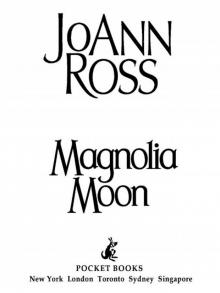 Magnolia Moon
Magnolia Moon Summer on Mirror Lake
Summer on Mirror Lake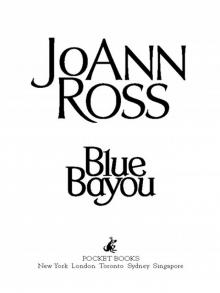 Blue Bayou
Blue Bayou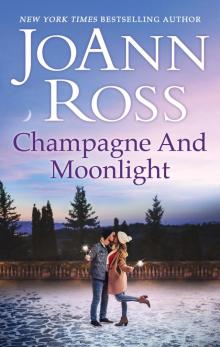 Champagne and Moonlight
Champagne and Moonlight No Regrets
No Regrets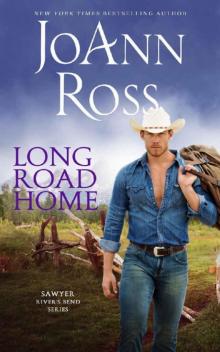 Long Road Home
Long Road Home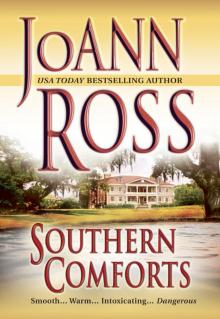 Southern Comforts
Southern Comforts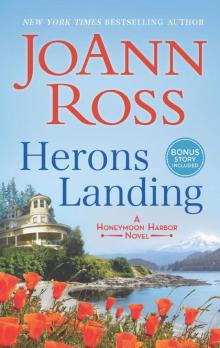 Herons Landing
Herons Landing Untamed
Untamed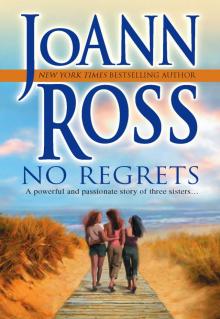 No Regrets (Mira Romance)
No Regrets (Mira Romance)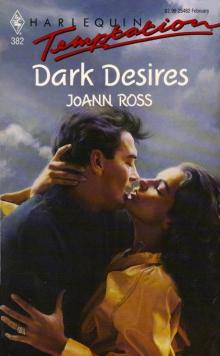 Dark Desires
Dark Desires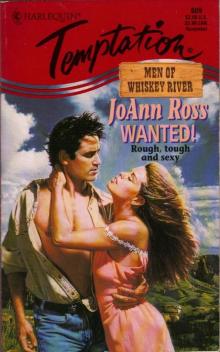 Wanted!
Wanted!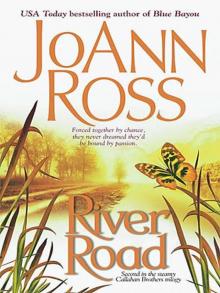 River Road
River Road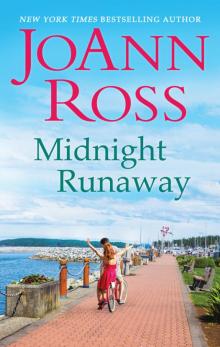 Midnight Runaway
Midnight Runaway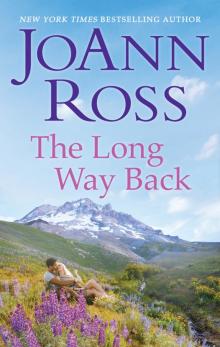 The Long Way Back
The Long Way Back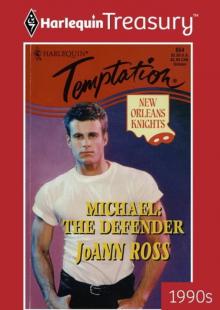 Michael: The Defender
Michael: The Defender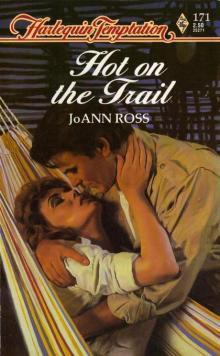 Hot on the Trail
Hot on the Trail When I'm With You
When I'm With You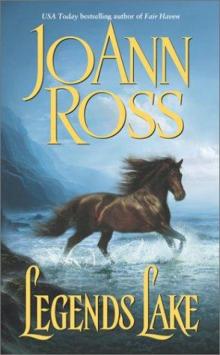 Legends Lake
Legends Lake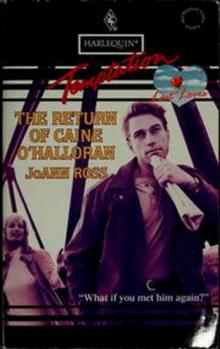 The Return of Caine O'Halloran
The Return of Caine O'Halloran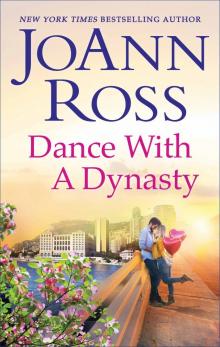 Dance with a Dynasty
Dance with a Dynasty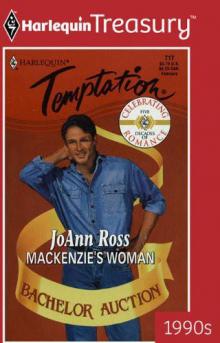 MacKenzie's Woman
MacKenzie's Woman Impulse
Impulse Sunset Point: A Shelter Bay Novel
Sunset Point: A Shelter Bay Novel You Again: A Shelter Bay novella (Shelter Bay series Book 8)
You Again: A Shelter Bay novella (Shelter Bay series Book 8)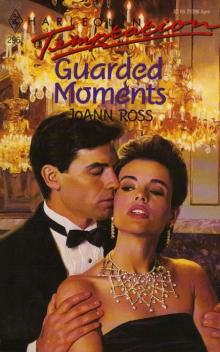 Guarded Moments
Guarded Moments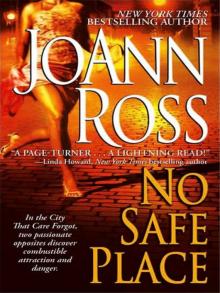 No Safe Place
No Safe Place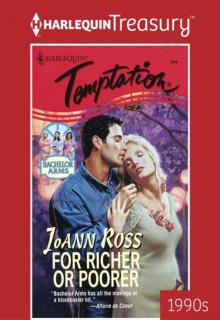 For Richer or Poorer
For Richer or Poorer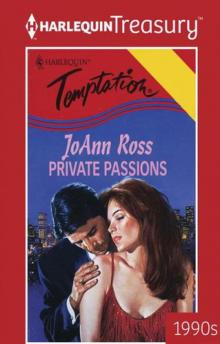 Private Passions
Private Passions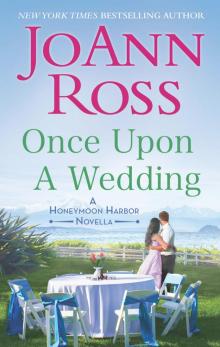 Once Upon a Wedding
Once Upon a Wedding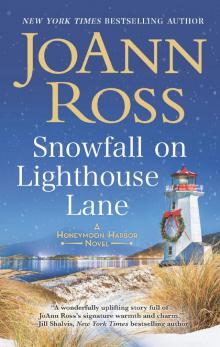 Snowfall on Lighthouse Lane
Snowfall on Lighthouse Lane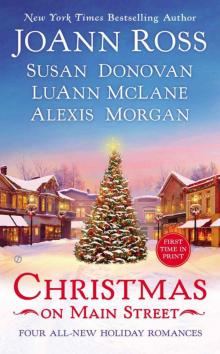 Christmas on Main Street
Christmas on Main Street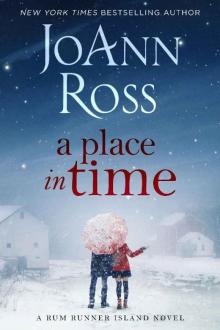 A Place in Time (Rum Runner Island Book 1)
A Place in Time (Rum Runner Island Book 1)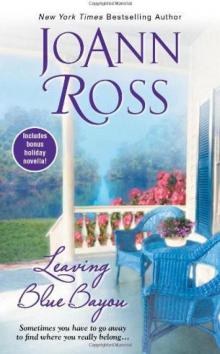 Leaving Blue Bayou
Leaving Blue Bayou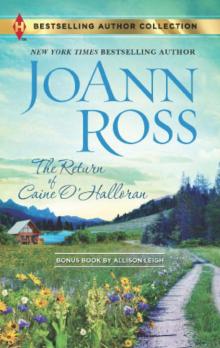 The Return of Caine O'Halloran: Hard Choices
The Return of Caine O'Halloran: Hard Choices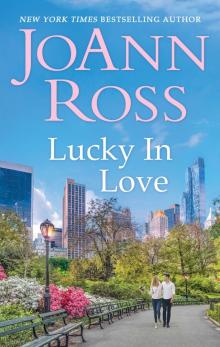 Lucky in Love
Lucky in Love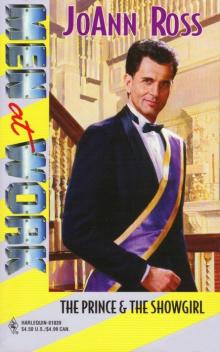 The Prince & The Showgirl
The Prince & The Showgirl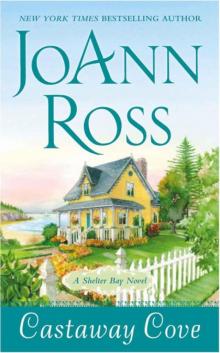 Castaway Cove
Castaway Cove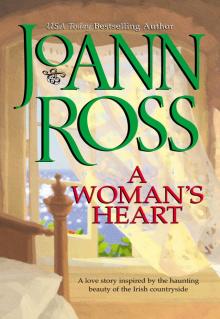 A Woman's Heart
A Woman's Heart One Summer
One Summer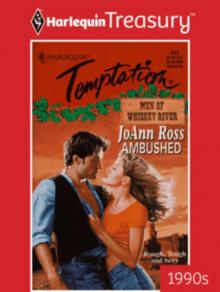 Ambushed
Ambushed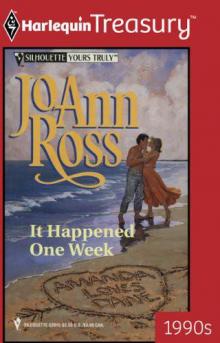 It Happened One Week
It Happened One Week Home by the Sea
Home by the Sea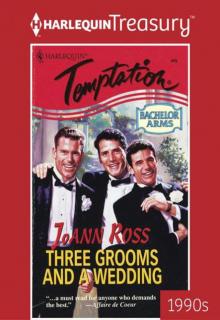 Three Grooms and a Wedding
Three Grooms and a Wedding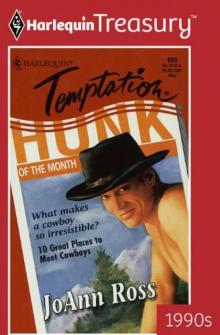 Hunk of the Month
Hunk of the Month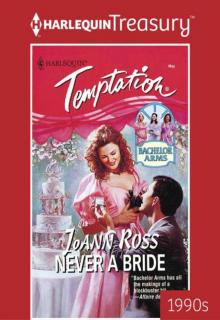 Never a Bride
Never a Bride Sun Kissed
Sun Kissed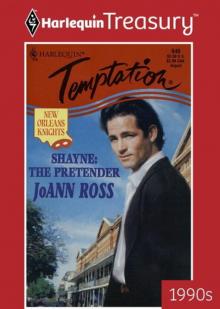 Shayne: The Pretender
Shayne: The Pretender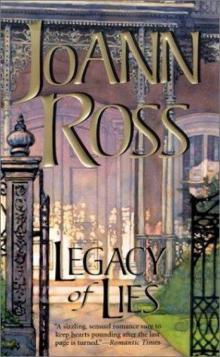 Legacy of Lies
Legacy of Lies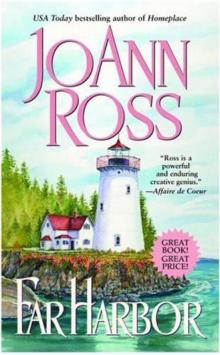 Far Harbor
Far Harbor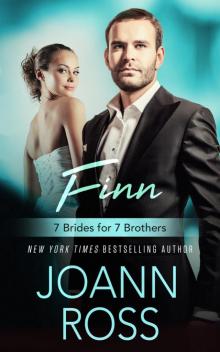 Finn
Finn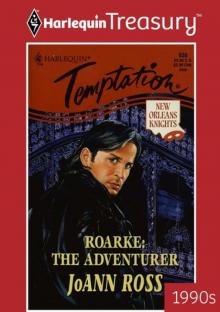 Roarke: The Adventurer
Roarke: The Adventurer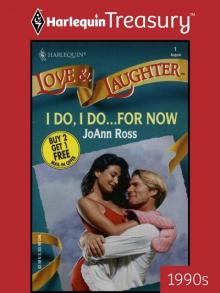 I Do, I Do...For Now (Harlequin Love and Laugher)
I Do, I Do...For Now (Harlequin Love and Laugher) Briarwood Cottage
Briarwood Cottage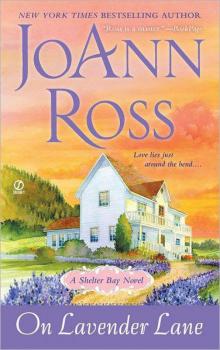 On Lavender Lane
On Lavender Lane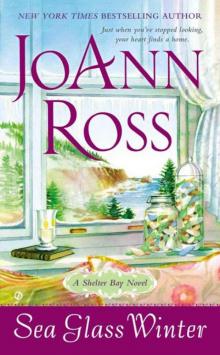 Sea Glass Winter
Sea Glass Winter River's Bend
River's Bend Christmas in Shelter Bay
Christmas in Shelter Bay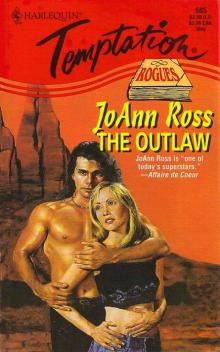 The Outlaw
The Outlaw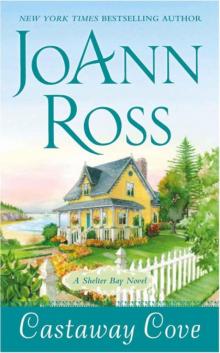 Castaway Cove (2013)
Castaway Cove (2013)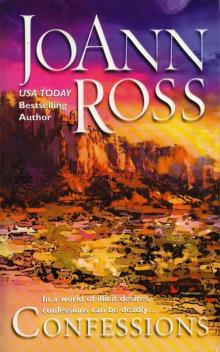 Confessions
Confessions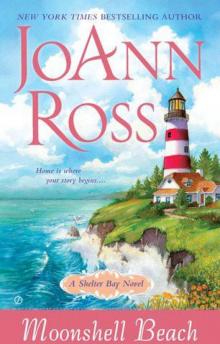 Moonshell Beach: A Shelter Bay Novel
Moonshell Beach: A Shelter Bay Novel